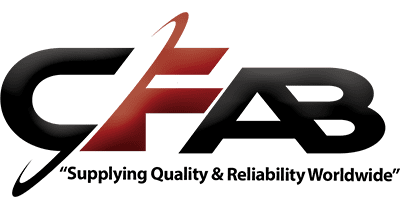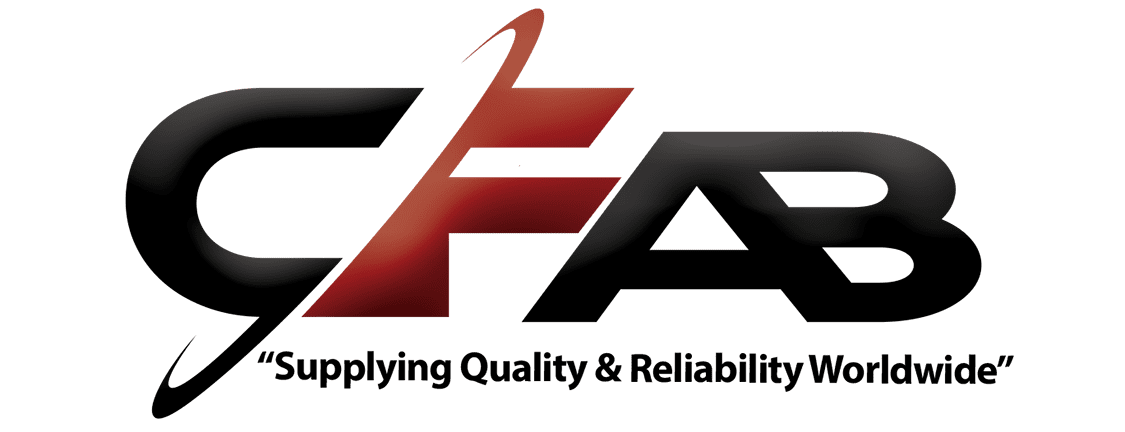Essential Insights on Grease Lubricant and Its Importance
What is grease lubricant? Grease lubricant is a semi-fluid to solid substance emerging from a combination of a liquid lubricant and a thickening agent. This blend ensures consistent lubrication and remains effective in place, unlike oil, which tends to flow away. It consists primarily of:
- Base Oil: Typically 70-90%
- Additives: Usually 1-10%
- Thickeners: Around 5-20%
In industrial settings, proper lubrication is critical, impacting not only efficiency but also the longevity and safety of machinery.
As the Executive Engineer and Sales at CFAB Global, with over 25 years of expertise in designing and improving food packaging and industrial machinery, I, Todd Cleppe, have extensive experience with what is grease lubricant and its pivotal role in various sectors.

What is Grease Lubricant?
Grease lubricant is a semi-solid substance that combines a liquid lubricant with a thickening agent. This unique blend allows grease to stay in place and provide consistent lubrication, unlike oils that can drip or run off.
Components of Grease
Grease is composed of three main components:
Base Oil: Typically 70-90%
The base oil is the primary lubricating element. Most greases use mineral oil, which performs well in many applications. However, synthetic oils are preferred in extreme temperatures for their enhanced stability.
Additives: Usually 1-10%
Additives improve the grease’s properties. Common additives include oxidation and rust inhibitors, extreme pressure agents, and anti-wear compounds. These ensure the grease can handle demanding industrial conditions.
Thickeners: Around 5-20%
Thickeners give grease its consistency. They act like a sponge, holding the base oil and additives together. Common thickeners include metallic soaps like lithium and calcium, and complex agents like polyurea.
Types of Grease and Their Uses
Grease can be classified based on the type of thickener used.
Metallic Soaps:
– Lithium: The most commonly used thickener, suitable for a wide range of temperatures and applications.
– Calcium: Known for its water-resistant properties, making it ideal for marine and wet environments.
– Sodium: Offers good high-temperature performance but is less water-resistant.
Non-soap Thickeners:
– Bentonite and Silica Aerogel: Used in high-temperature environments where metallic soaps might fail.
Synthetic Greases:
These use synthetic base oils and are designed for extreme temperatures and conditions. They offer better stability and performance compared to mineral oil-based greases.
Practical Applications
Grease is essential in various industries:
- Automotive: Used in chassis components, wheel bearings, and suspension systems to handle heavy loads and resist water contamination.
- Manufacturing: Lubricates conveyor belts and motor bearings, reducing wear and prolonging equipment life.
- Aerospace: Specialized synthetic greases are used in aircraft components, ensuring reliability under extreme conditions.
- Marine: Marine-grade greases protect ship machinery from saltwater corrosion and extreme weather.
- Construction: Vital for lubricating moving parts in heavy equipment, offering dust and water resistance.
In each of these sectors, grease not only lubricates but also protects against wear, corrosion, and environmental challenges, proving its versatility and indispensability in the industrial world.

As the Executive Engineer and Sales at CFAB Global, with over 25 years of expertise in designing and improving food packaging and industrial machinery, I, Todd Cleppe, have extensive experience with what is grease lubricant and its pivotal role in various sectors.
How Does Grease Lubricant Work?
Grease lubricant plays a critical role in reducing friction, minimizing wear, and extending the life of machinery. But how does grease lubricant work, and why is it preferred over oil in certain situations? Let’s dive into the specifics.
Grease vs Oil: Key Differences
Consistency: Grease has a thicker consistency compared to oil. This thickness allows grease to stay in place and maintain a lubricating film over a longer period and under higher pressures. Oil, being more fluid, flows more easily but may require more frequent application.
Application: Grease is ideal for machinery that operates intermittently or is in storage for extended periods because it remains in place, ready to lubricate once the machinery is in motion. It’s also favored in machinery that is not easily accessible for frequent lubrication. Oil, on the other hand, is best suited for continuous-operation machinery where a thin, steady lubricant layer is needed.
Temperature Resistance: Grease generally handles extreme temperatures better than oil, especially when the correct thickener and base oil are chosen. Oils are more prone to viscosity changes with temperature fluctuations.
Specialized Applications of Grease
Grease lubricant finds its use in a variety of specialized applications across different industries, each benefiting from its unique properties.
Automotive: Grease is extensively used for lubricating chassis components and wheel bearings in vehicles. Its ability to withstand heavy loads and resist water contamination makes it ideal for these applications. High-performance greases are also used in suspension systems, enduring varying temperatures and pressures.
Aerospace: In the aerospace industry, specialized synthetic greases are used for aircraft components, including bearings, gears, and control systems. These greases must perform reliably under extreme temperature variations and pressures, ensuring the safety and efficiency of the aircraft.
Marine: Marine-grade grease lubricants protect ship machinery from saltwater corrosion and extreme weather conditions. They are crucial for equipment like winches, pulleys, and rudders, ensuring smooth operation even in harsh marine environments.
Construction: In the construction industry, grease is vital for lubricating moving parts in heavy equipment like bulldozers, cranes, and excavators. These machines operate in outdoor environments where dust and water resistance are necessary, making grease an indispensable lubricant.

In each of these sectors, grease not only lubricates but also protects against wear, corrosion, and environmental challenges, proving its versatility and indispensability in the industrial world.
Benefits of Using Grease Lubricant
Pumpability and Stability
Grease is known for its pumpability, which means it can be easily moved through lubrication systems to reach complex machinery parts. This is crucial for ensuring consistent lubrication across all components, even those that are hard to access.
A key benefit of grease is its stability. The thickener and base oil composition ensure that grease stays in place, providing a continuous lubricating film. This stability is particularly important for machinery that experiences high vibrations or varying operational speeds.
For example, in the automotive industry, grease is extensively used for chassis components and wheel bearings. Its ability to withstand heavy loads and resist water contamination makes it ideal for these applications.
Sealing and Protection
One of the standout features of grease is its sealing properties. Grease acts as a sealant to prevent the ingress of contaminants such as dust, dirt, and water. This sealing ability extends the life of machinery components by protecting them from harmful elements.
In the marine industry, for instance, marine-grade grease lubricates and protects ship machinery from saltwater corrosion and extreme weather conditions. This is crucial for equipment like winches, pulleys, and rudders, ensuring smooth operation even in harsh marine environments.
Construction: In the construction industry, grease is vital for lubricating moving parts in heavy equipment like bulldozers, cranes, and excavators. These machines operate in outdoor environments where dust and water resistance are necessary, making grease an indispensable lubricant.
In each of these sectors, grease not only lubricates but also protects against wear, corrosion, and environmental challenges, proving its versatility and indispensability in the industrial world.
Choosing the Right Grease Lubricant
Factors Influencing Grease Selection
Choosing the right grease lubricant is essential for maintaining the efficiency and longevity of your machinery. Here are some key factors to consider:
Load: Heavy machinery requires grease that can withstand high pressure. For instance, lithium complex greases are often used in heavy-duty applications due to their excellent load-carrying capabilities.
Speed: The speed at which machinery operates also affects grease selection. Low-speed applications may benefit from thicker greases, while high-speed machinery often requires lighter greases to reduce friction.
Temperature: Temperature variations can influence grease performance. Synthetic greases are ideal for environments with extreme temperatures, providing stability and consistent lubrication.
Environment: Consider environmental factors like water exposure, dust, and contaminants. For example, calcium greases offer excellent water resistance, making them suitable for marine applications.
NLGI Grading System
The NLGI grading system helps in selecting the right grease based on its consistency. Here’s a quick overview:
| NLGI Grade | Consistency | Typical Applications |
|---|---|---|
| 000 | Extremely Fluid | Centralized lubrication systems, gearboxes |
| 00 | Very Fluid | Semi-fluid applications, steering systems |
| 0 | Fluid | Centralized systems, underbody automotive applications |
| 1 | Semi-Fluid | General-purpose, colder temperatures |
| 2 | Moderate (Standard) | Most common grade; automotive, industrial |
| 3 | Firm | Higher temperature applications |
| 4-6 | Very Firm to Very Hard | Specialized applications where minimal leakage is critical |
CFAB Global’s Machine Reliability Program
At CFAB Global, we understand that every industry has unique lubrication needs. Our Machine Reliability Program offers customized solutions to enhance your equipment’s productivity and lifespan.
Customized Solutions: We tailor our grease lubricants to meet your specific machinery requirements, ensuring optimal performance.
Increased Productivity: Proper lubrication reduces wear and tear, minimizing downtime and maintenance costs.
Extended Equipment Lifespan: Our high-quality greases protect against corrosion and environmental challenges, prolonging the life of your machinery.
By considering factors like load, speed, temperature, and environment, and utilizing the NLGI grading system, you can select the right grease lubricant for your needs. Trust CFAB Global to provide the expertise and products that keep your machinery running smoothly.
Next, we’ll address some frequently asked questions to help you better understand the essentials of grease lubrication.
Frequently Asked Questions about Grease Lubricant
What are the main components that make up grease?
Grease is made up of three primary components: base oil, additives, and thickeners.
- Base Oil: This forms 70-90% of the grease. It can be petroleum-derived, synthetic, or vegetable-based.
- Additives: These enhance performance and make up 1-10% of the grease. They improve properties like water resistance, oxidation stability, and corrosion protection.
- Thickeners: Making up 5-20%, thickeners give grease its semi-solid form. Common types include metallic soaps and non-soap thickeners.
In what situations is grease preferred over oil in industrial machinery?
Grease is preferred over oil in several scenarios:
- Intermittent Operation: Grease stays in place during machinery shutdowns, unlike oil which can drain away.
- Inaccessible Lubrication Points: Grease is ideal for hard-to-reach areas where frequent relubrication is impractical.
- Extreme Conditions: Grease performs better in environments with high loads, vibrations, or exposure to contaminants.
- Sealing Contaminants: Grease acts as a sealant, preventing dust, dirt, and water from entering machinery components.
How often should grease be applied in industrial machinery?
The frequency of applying grease depends on several factors:
- Type of Machinery: Different machines have different lubrication needs. For example, high-speed motors may need more frequent greasing than low-speed conveyors.
- Operating Conditions: Harsh environments or heavy loads require more frequent lubrication.
- Manufacturer Guidelines: Always follow the manufacturer’s recommendations for maintenance schedules.
Regular maintenance schedules ensure that machinery runs smoothly and efficiently. Consult your machinery’s manual and work with experts like CFAB Global to establish the right greasing intervals for your specific needs.
Next, we’ll summarize the key points and provide a final call to action to help you make the most of grease lubrication in your operations.
Conclusion
In summary, grease lubricant plays a crucial role in ensuring the smooth operation and longevity of machinery. Unlike oil, grease stays in place, providing consistent lubrication even under high pressure and extreme conditions. This makes it ideal for applications where frequent re-lubrication is impractical or where machinery operates intermittently.
Key Points:
– Composition: Grease is a mixture of base oil, thickeners, and additives.
– Advantages: It acts as a sealant, reduces noise, and decreases the risk of contamination.
– Applications: Suitable for automotive, aerospace, marine, and construction industries.
– Selection: Factors like load, speed, temperature, and environment influence grease selection.
Final Thoughts:
Choosing the right grease lubricant can significantly impact the efficiency and lifespan of your machinery. Regular maintenance and proper application are essential for optimal performance. Partnering with experts like CFAB Global can help you navigate the complexities of grease selection and application, ensuring your operations run smoothly.
Call to Action:
Ready to enhance your machinery’s performance with the right grease lubricant? Visit our Automated Lubrication System page to learn more about our customized solutions. Let us help you increase productivity and extend the lifespan of your equipment.
For food packaging or processing needs, explore the innovative solutions offered by Beth-El Machinery Ltd..
By understanding and utilizing grease lubricants effectively, you can ensure your machinery operates at its best, reducing downtime and maintenance costs. Thank you for choosing CFAB Global as your trusted partner in lubrication solutions.






